
Maruti Suzuki Wagon R Review: First Drive
Built on Maruti Suzuki's fifth-generation Heartect platform, the WagonR is surely an enticing product for the masses. In fact, the third-generation of the tall-boy Maruti ups the ante in almost every aspect. Learn more in our full review.
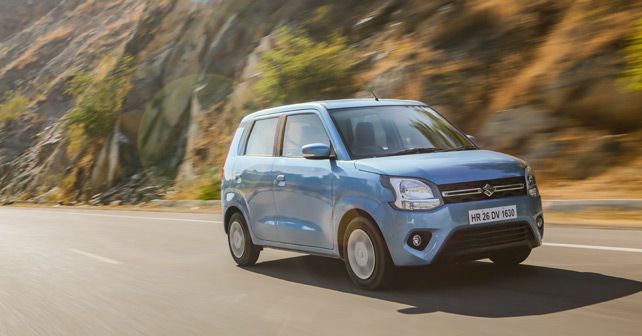
Maruti Suzuki’s third generation WagonR has been designed to keep its identity intact. But in doing so, Maruti has cleverly added a whole new dimension to one of its all-time bestsellers.
20 years! That’s how long the WagonR has been on sale in India. When the WagonR, in fact, was first launched here, it was marketed as an ‘intelligent’ car with its advertisements bragging about its 16-bit computer system. And the practical nature of the car was highlighted with the tagline – MAV- which stood for Multi Activity Vehicle. There weren’t very many options in the Indian car market back then, and the WagonR was viewed as the most spacious hatchback in the country that came with reliable Japanese engineering. Nevertheless, some people thought that the WagonR was an oddball, owing to what Maruti referred to as its ‘tall boy’ design, while others thought it to be quite a good all-rounder.
Fast forward 20 years and Maruti Suzuki has sold over 2.2 million units of the WagonR in India. And what some people referred to as an oddball at the beginning has been one of the top 5 best-selling cars in India for nearly two decades!
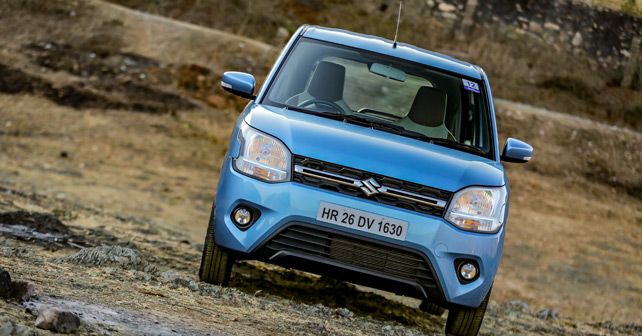
Evolutionary rather than revolutionary
The new third-generation model of the WagonR then has a lot riding on its shoulders. Built on Maruti Suzuki’s fifth-generation Heartect platform, this new model is longer, wider and lighter than before. And, I think, it looks odder than ever before. But if history has taught us anything, it’s that this shape and design theme really works for the WagonR. The car now appears to have a low set nose and a high roof, despite the fact that the car is marginally lower than the earlier model. The side profile, too, is fairly slab-sided like earlier. A new styling element is the black plastic cladding on the C-pillars. The oddball design theme continues around the rear of the car as well, with the tall rear end that now incorporates the tail lights running down from the top of the C-pillars, while the bumper continues to be a tall unit. After having asked a lot of people about the new car’s design, my poll results state that everyone preferred the design of the previous model. But then again, not many people liked the design of the WagonR at the very beginning either, and we all know what happened – they went and bought one anyway!
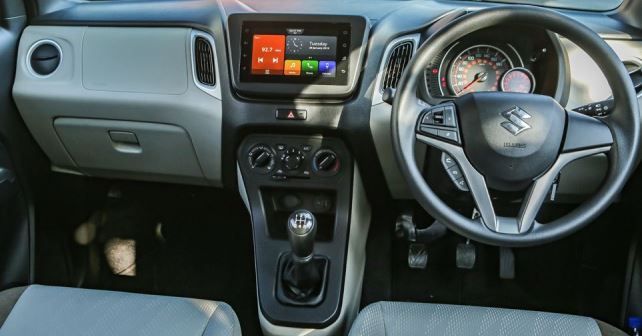
This evolutionary rather than revolutionary approach to design for the new car is evident inside the cabin as well, for the dashboard layout is very similar to that of the previous model. A change that I did like was that the lower portion of the centre console has been redesigned to bring the gear lever closer to reach, something that aids in quick shifts for the short throw gearbox. What I did not like, however, was the fact that unlike the earlier WagonRs with adjustable headrests, Maruti has gone for a more cost-effective solution for the new one, as the seats now get integrated headrests. For the front seats, these headrests now offer little support, and on the rear seat they offer no support at all – you can’t rest your head on them. In fact, the larger issue is that they are mere pop up extensions of the seat, so they tend to hit you at an odd angle in the lower portion of your head in case of sudden braking.
Leaving the headrest issue aside, the cabin of the WagonR is a comfortable place to be. There is plenty of space inside for front and rear occupants, with plenty of legroom and headroom. The seats themselves could have been more supportive. Although it’s worth noting that there is enough under-thigh support for rear seat passengers. And all the way at the back, the boot has been made larger to accommodate more luggage.
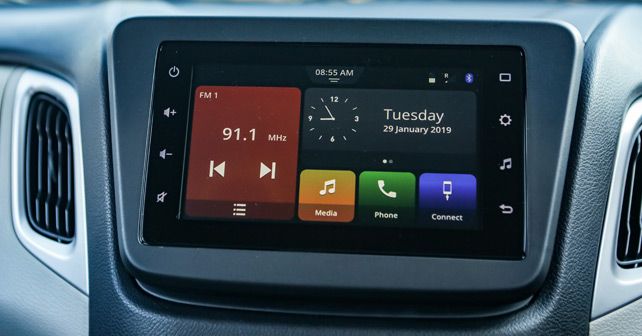
The biggest highlight inside the new car’s cabin would have to be Maruti’s new Smartplay Studio infotainment system that even comes with a custom music app for the system. The new unit also facilitates control of some vehicle-related features, such as seat belt reminders and low fuel reminders. While I didn’t have the time to familiarise myself with the system, what I could tell right off the bat was that this system’s interface isn’t really as sober and subtle as the original system. I loved that system for its simplicity and clean interface. Whereas this system uses bright and colourful icons that instantly bring a child’s toy tablet interface to mind. So, while some of us aren’t big fans of the new display, I sure hope that it functions brilliantly like the earlier system.
A new dimension
While Maruti decided to play it safe in terms of design, the carmaker took a bold step by offering its larger capacity 1.2-litre, four-cylinder petrol engine in the higher variants of the new car. Now, this is the same unit that also does duty in cars such as the Swift, Ignis, Baleno and Dzire. And in fact, it develops identical power and torque outputs, as it does in the other cars as well. A Swift engine in the WagonR, now that sounds exciting! And it should, for this engine loves to rev and offers good punch all the way to the redline – it offers 82bhp at 6,000rpm. What’s more, in the WagonR, it’s available in the same state of tune, so you may very well be behind the wheel of a WagonR, but it’s a different experience now. The engine starts to become more energetic from 2,000 rpm onwards, giving you a nice surge of power all the way to the redline, as you cross the peak torque output of 113Nm, which is available at 4,200rpm.
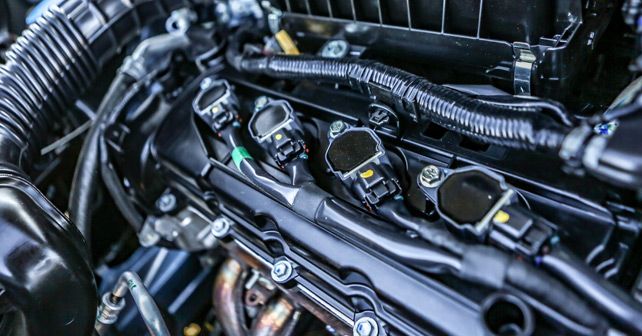
All this combined with the short throw, five-speeder warrants the claim that WagonR has truly found a new lease of life in this new-gen avatar. It has now become a peppy car to drive, with its compact dimensions and well-weighted steering wheel. Keeping urban driving conditions in mind, Maruti Suzuki has spaced the gear ratios rather well, making frequent gear changes in slow-moving traffic unnecessary. In fact, so impressive is the setup that you can drive from 20 km/h in fourth gear without any judder. But this hasn’t been the case for earlier Maruti cars – they would lurch at low speeds in higher gears. And this is something that will greatly improve low-speed drivability.
Another aspect that has greatly improved driveability is the new chassis and suspension setup. Built on Maruti Suzuki’s fifth generation Heartect platform, the new WagonR is now 45 – 55 kg lighter than the model it replaces. And yet it is 19mm longer and 145mm wider than earlier, and it has a 35mm longer wheelbase too. The larger dimensions have allowed Maruti to make the cabin more spacious and comfortable. Now, while these benefits are quite apparent, they aren’t the only ones. It’s only when you hit the road, you realise the other benefit of the Heartect platform – the new suspension setup!
I must say that the most impressive element of the new car, for me at least, isn’t the bigger engine – which I really like a lot – but the new suspension. The way Maruti has set it up is truly impressive. For it dismisses small and large pot holes and ruts with equal aplomb and dismisses them without unsettling the car in any way. But don’t think for a moment that the suspension setup is overly soft, for it also ensures that the car remains confident at high speeds both in a straight line and around wide sweeping bends. The only element that can cause the car to become a little twitchy is abrupt and repeated road undulations, but only when the car is at fairly high speeds. Something that you’re not likely to experience quite often. But even if you do, it’s not alarming as such. What can be a bit alarming, though, is the fact that the tall side profile tends to make the car feel a little unsettled if you encounter a crosswind over elevated roads.
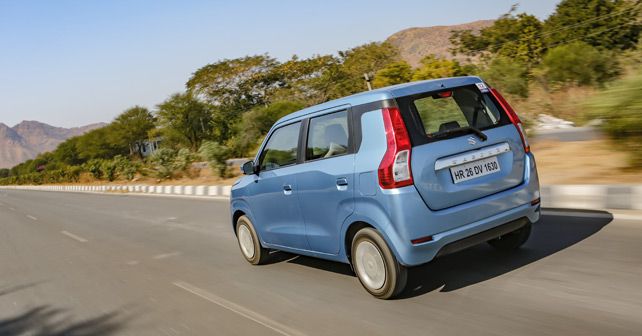
Leaving that aside, the new engine and suspension setup have truly expanded the horizon for the WagonR, as it’s now become a capable long-distance highway car, and, at the same time, it continues to be just as capable in the city.
During our First Drive of the WagonR, I also happened to drive the AMT automatic version of the WagonR, which is identical to all other Maruti Suzuki 1.2 AMT automatics in terms of driveability and performance. The AMT transmission gives you the convenience of driving an automatic car but at a price. Upshifts can be jerky, especially during inconsistent throttle inputs, owing to our irregular traffic conditions. But if you want a smoother drive, you can modulate the accelerator pedal by lifting off slightly every time you want an upshift (much like in a manual car) and the system will automatically find the next gear. Downshifting is much easier as you simply have to depress the accelerator pedal harder and the system will go down a gear or even two, depending on the condition. Once you master this system, you can enjoy the benefits of far better fuel efficiency than an automatic car with a traditional CVT or torque converter automatic gearbox.
Yay or nay?
Maruti Suzuki has already received 12,000 bookings for the new WagonR from the day of its launch on the 23rd of January. In the past, the company has seen 24 per cent of WagonR customers become repeat buyers. Over the years, people have gone on to love the practical and reliable nature of the WagonR, and the new car sure looks like it’s here to build on those credentials. The new WagonR retains its instantly identifiable ‘tall boy’ stance, but now it has a more capable engine and a brilliant suspension setup.
Engine: 1,197cc / 4-Cylinder / 16-Valves / Naturally Aspirated
Fuel: Petrol
Transmission: 5-speed Manual / 5-speed AMT / Front-Wheel Drive
Power: 82bhp @6,000rpm
Torque: 113Nm @ 4,200rpm
Price: Rs. 5.22 lakh / 5.69 lakh (ex-showroom Delhi)
X-Factor: Has the engine from the Swift and the practicality of a WagonR.
|
Pros |
Cons • Integrated headrests |


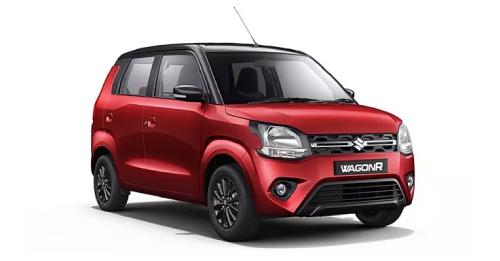

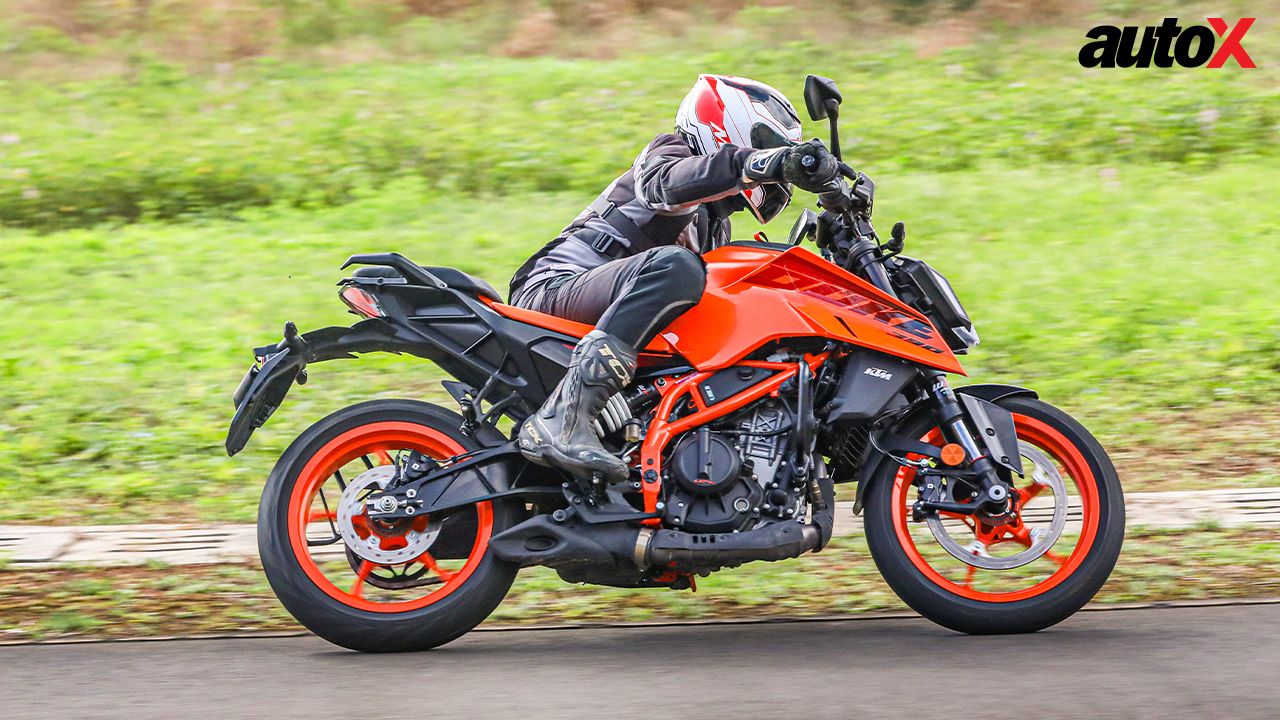
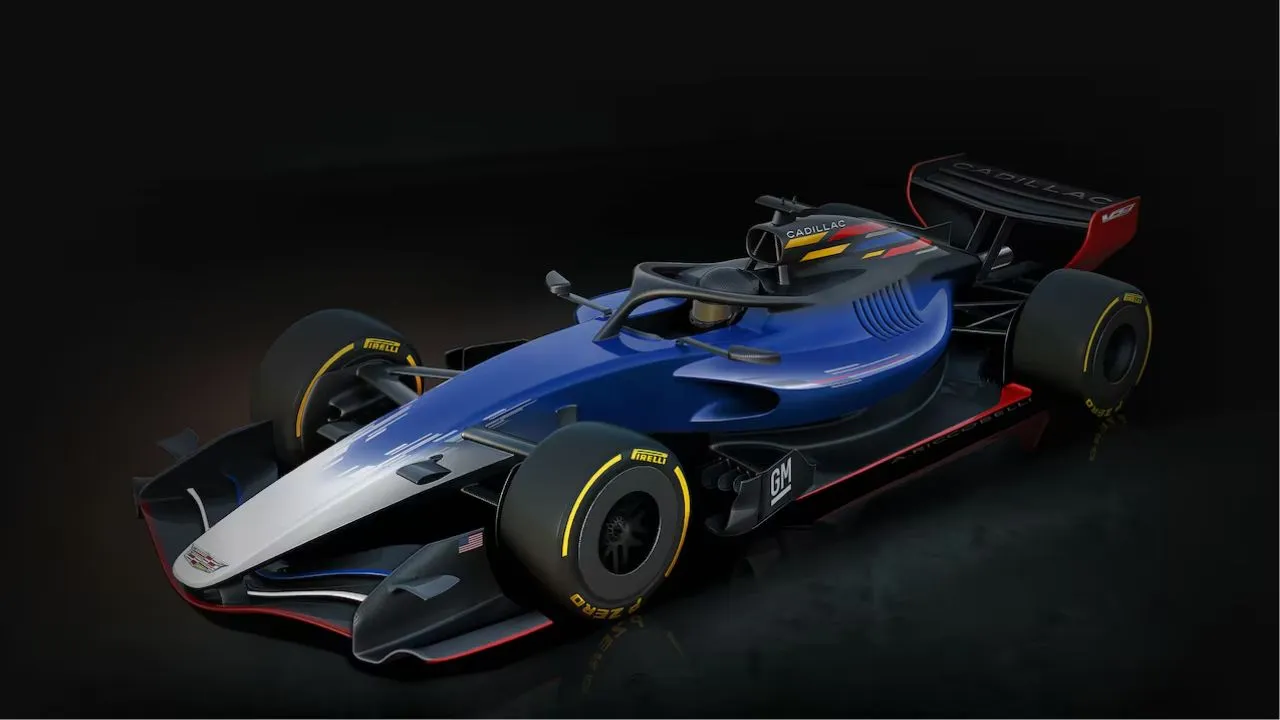
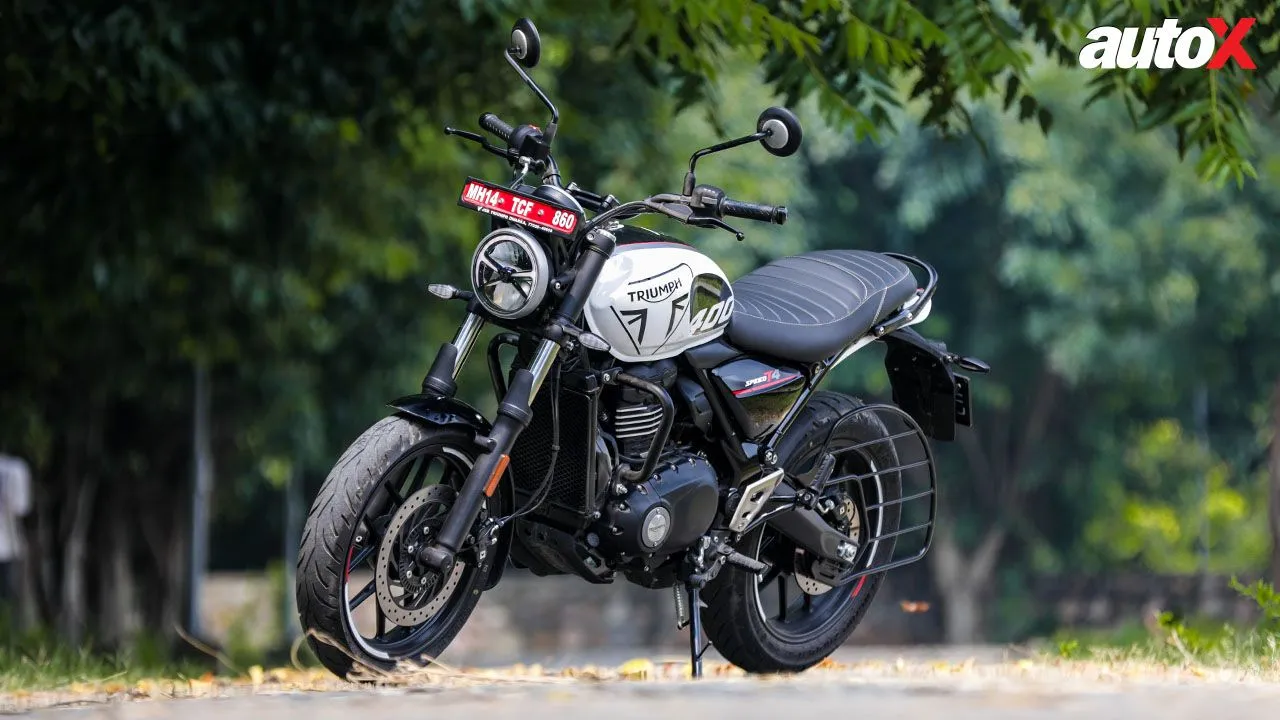
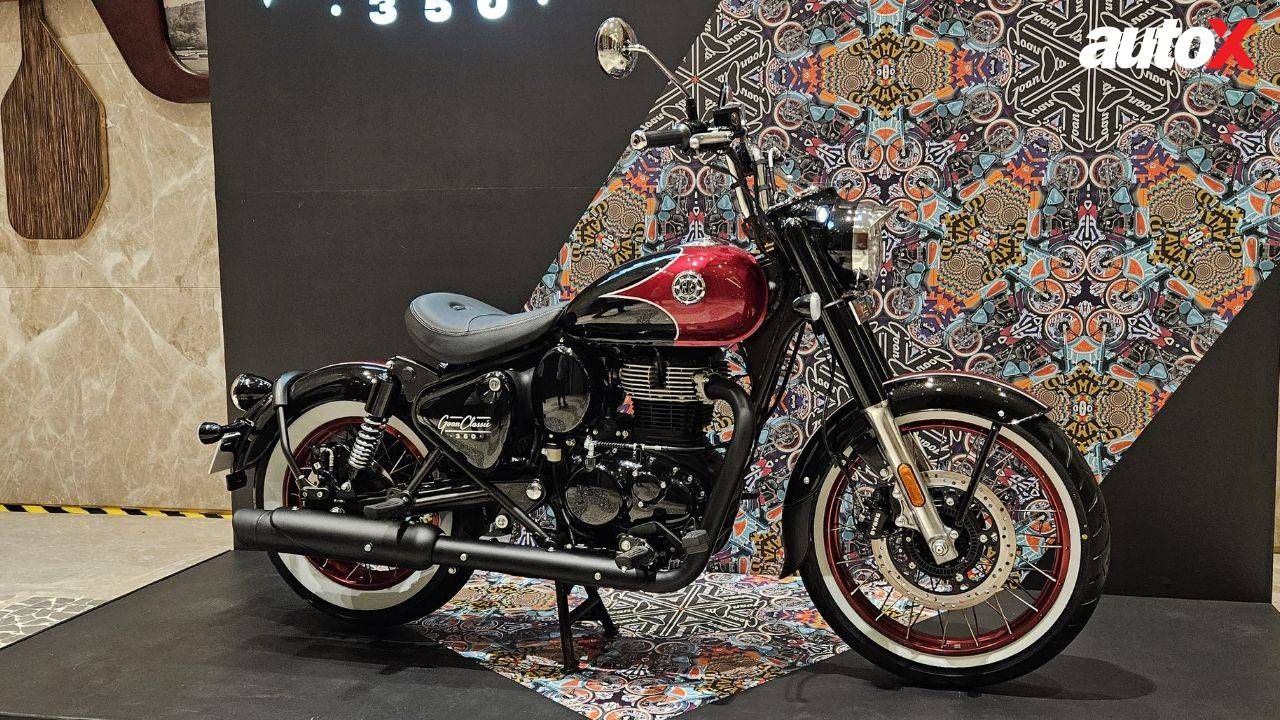
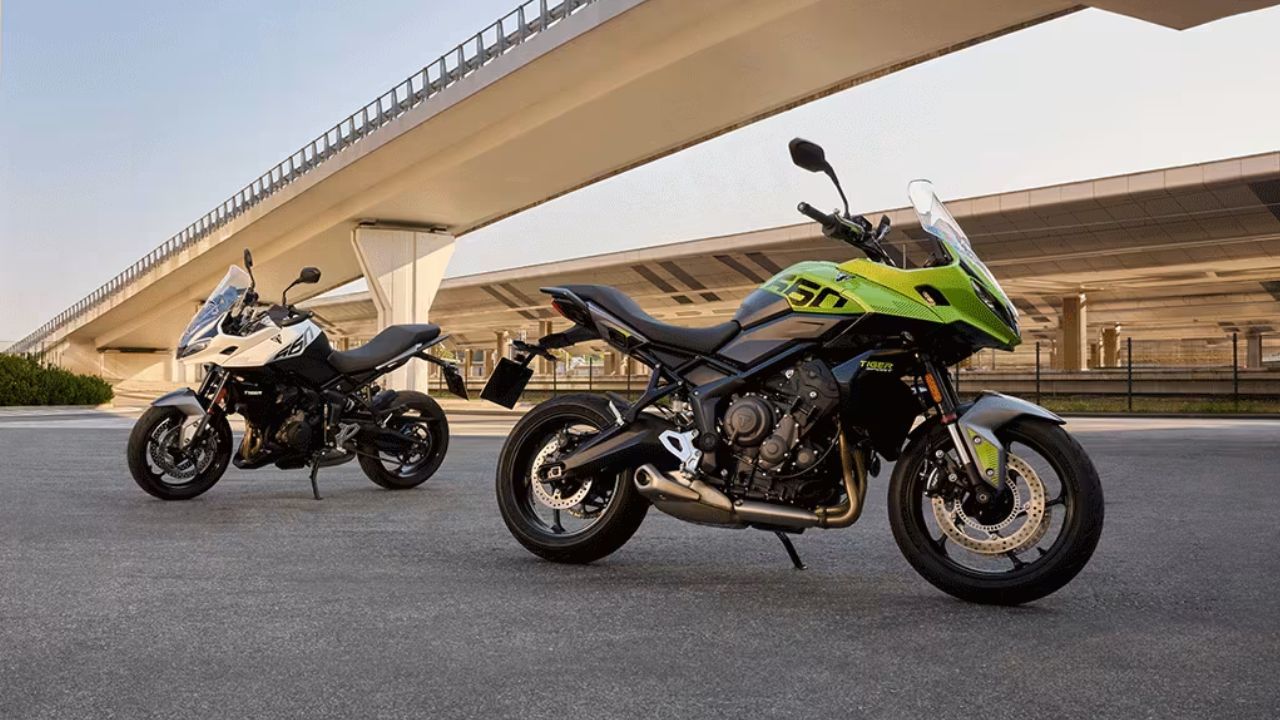
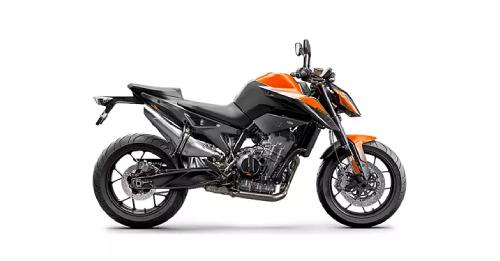
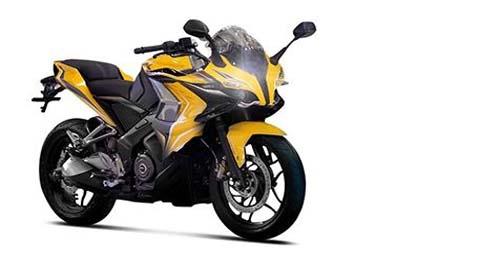
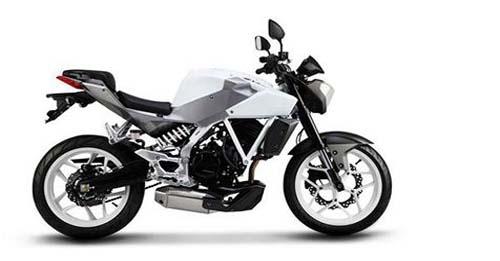
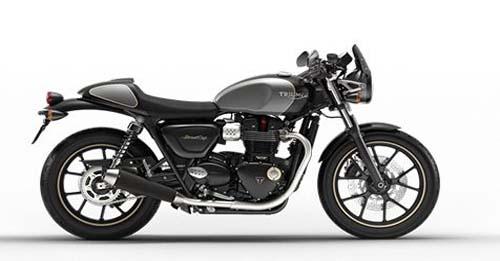










Write your Comment on